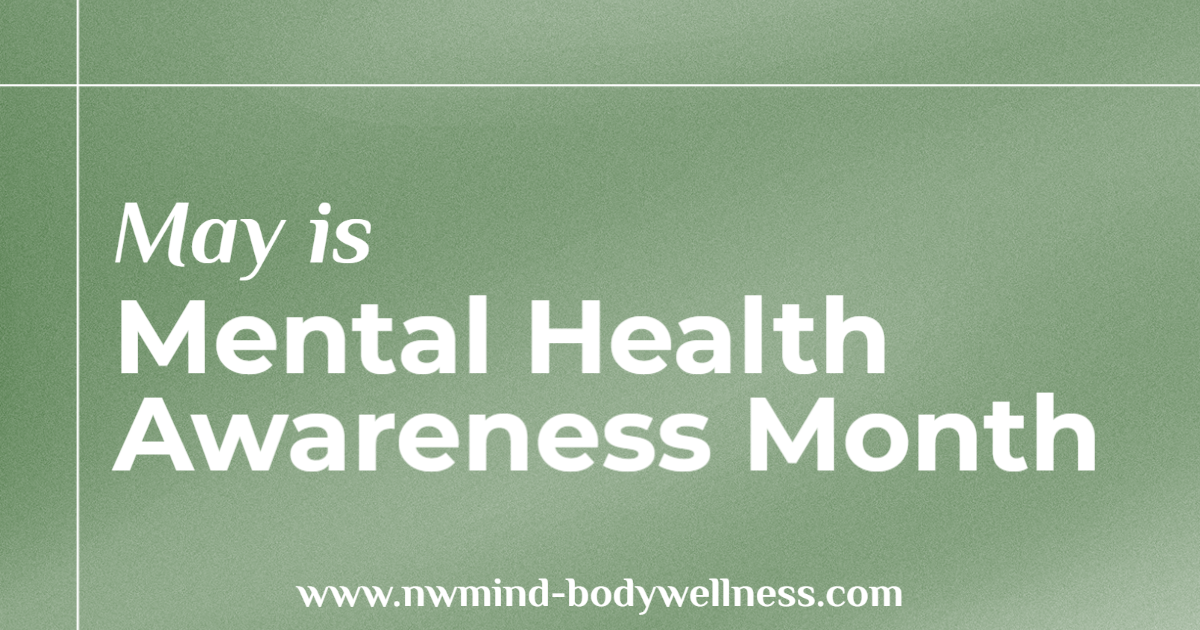
Mental Health Awareness Month
In a world that often overlooks mental health, the significance of Mental Health Awareness Month cannot be overstated. Throughout the month of May, individuals, organizations, and communities unite to bring awareness to mental health as a whole. This annual observance serves as a reminder of the critical role mental health plays in our lives. Let us embrace this opportunity to prioritize mental well-being and advocate for a society that values the mental health of all its members.
This year’s theme is “Look around, look within.” This theme encourages us to cultivate self-awareness and to nurture our mental well-being through self-care, self-compassion, and seeking help when needed. By turning our attention inward, we can better understand and address our own mental health needs, fostering resilience, growth, and personal transformation.
Mental Health by the Numbers
Many individuals struggle with their mental health. This is important to recognize because it can help you understand that you are not alone. Regardless of the stigma, it is common to face challenges with your mental health. The following statistics by NAMI showcase the presence of mental conditions in the United States.
- 1 in 6 U.S. youth aged 6-17 experience a mental health disorder each year
- 1 in 5 U.S. adults experience mental illness each year
- 1 in 15 U.S adults experienced both a substance use disorder and mental illness in 2020
- Suicide is the 10th leading cause of death in the U.S.
Causes and RIsk Factors
There are many causes and risk factors for mental health conditions. Although there is no one clear most mental illnesses, experts agree that the following may increase one’s risk factor:
- Trauma can cause long-term changes in the way that one thinks and make them more vulnerable to many mental health conditions.
- Genetics can increase the risk of many mental health conditions, as many tend to run in families.
- Other medical conditions can contribute to mental illness. Many physical and mental health conditions can increase one’s risk for other illnesses.
Self Care for Mental Health
It may not be a cure all, but many individuals find that their mental health improves with self care. Self care can include a variety of things, but it is important to figure out what is best for you. Some ways you can practice self care are to:
- Eat healthy meals and stay hydrated
- Ensure you are getting enough sleep
- Get active, even if in small amounts
- Find a relaxing activity
- Set goals
- Focus on the positive in your life
When to Seek Help
It is important to seek professional health if your mental health struggles persist. If your symptoms last more than two weeks, we strongly recommend speaking with your health care provider. Together, you and your provider can create a plan for you to get the treatment that you need.
Crisis Help
If you or a loved one is in a crisis, it is important to get help immediately. If in danger of suicide:
- Call 911
- Go to the nearest emergency room
- Call the toll-free, 24-hour hotline of the National Suicide Prevention Lifeline at 1-800-273-TALK (1-800-273-8255); TTY: 1-800-799-4TTY (1-800-799-4889)
Learn More
- To learn more about mental health, we recommend contacting your healthcare provider.
- To read more about Mental Health Awareness Month, the following resources are suggested:
Return to home page: https://nwmind-bodywellness.com/
Read more articles: https://nwmind-bodywellness.com/articles/